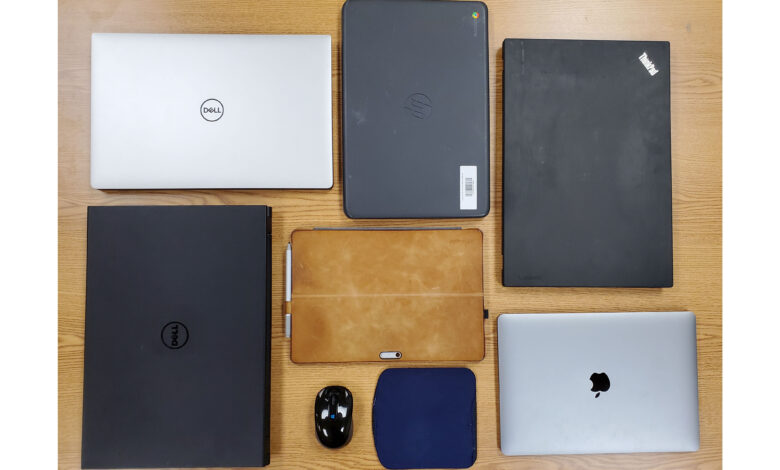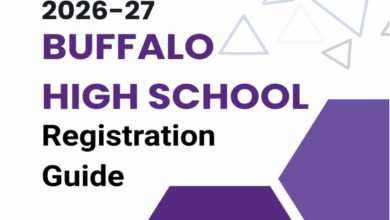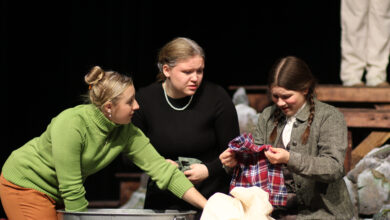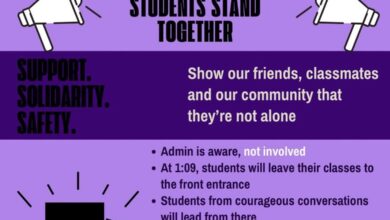
It’s Fourth Block. Class starts and everyone pulls out the laptop that they borrowed from the school. You go to classroom.google.com to work on your laptop for your history project. After the class ends, you still aren’t done, so you pack up your laptop and go home to work on the same laptop that you borrowed from school. The next day, you feel sick, so you stay home from school and instead pull out the same laptop you borrowed from the school and do your work from home in your bed.
Two years ago this scenario would have been unheard of in the district, but now it’s a fact of daily life. How did this come to be?
In March 2019, COVID-19 forced schools worldwide to shut down while they figured out how to teach in the midst of a pandemic. Teachers couldn’t communicate with students like they always had due to distancing policies and the rapid spread of the virus. When it became apparent that school wouldn’t be reopening any time soon, the obvious solution was to communicate online. Many districts easily converted as everyone already had a computer from the school that they had used every day, however, BHM needed to get devices out to students. Historically, the district has been against adopting an official 1:1 policy, instead opting to use computer carts and desktops in labs. Now that this wouldn’t be an option, BHM, along with other districts, adopted a new learning policy, known as the 1:1 device initiative.
The policy ensured every student in the district was given the option to get their own device for learning provided by the school. While this policy worked during quarantine, teachers found that they were able to teach more effectively when their students had devices every day. When students returned back to the building, the school had them keep their laptops to be used in their in-person classes, which allowed teachers to use online resources for lessons without needing to reserve Chromebook carts or computer labs. However, some teachers, like Orchestra teacher Kristine Wiese, consider having laptops a burden, because it requires students to have a backpack with them when going to classes, which takes up a lot of space in the Orchestra room.
Teachers across the district have modified their curriculums to fit the new device.
“I think it was basically a year and a half long process. As we were doing distance learning, I was adapting my slideshows and lessons to fit this format,” said Spanish Teacher Elizabeth Nordmeyer.
However, some teachers didn’t find adapting their previous lessons to the new format difficult.
“When I joined BHS seven years ago I was already using Google Classroom, so [the lesson] was already on a day-to-day basis,” said English Teacher Anna Reedy.
This process may be working right now, and District IT Director Dr. Mat Nelson is in charge of ensuring the program can be sustainable.
“District-wide we were thankfully able to use CARES and ESSER [COVID relief’ funds to purchase devices, cleaning supplies, and other things to assist safe learning during the pandemic,” Nelson said.
This does mean that the only way the school was able to fund the project was through the district’s COVID relief fund, and Nelson said the district will need to assess if it wants to keep repairing and replacing their devices.
The school does hold students accountable for their borrowed devices, because there is an insurance program and repair costs for high schoolers to pay for in case of damage to the computers.
Students are given the option to pay a $45 fee to insure their device, meaning all repairs for the rest of the year will be free, otherwise, the prices of repair costs vary with the severity of the damage, up to $175. The school’s attitude towards the protection of their devices has also changed dramatically, as before every Chromebook had numbers and its location was always known at all times.
We interviewed a librarian, Tammy Otten. “Before March of ‘19, if you would have told me that every student would have a device that could be taken out of [the building] I would have told you that you were crazy,” Library assistant Tammy Otten said, “because we held our devices very tightly, and accounted for them very closely.”
It remains to be seen if the policy will be kept, with this year being an official pilot for this program.





